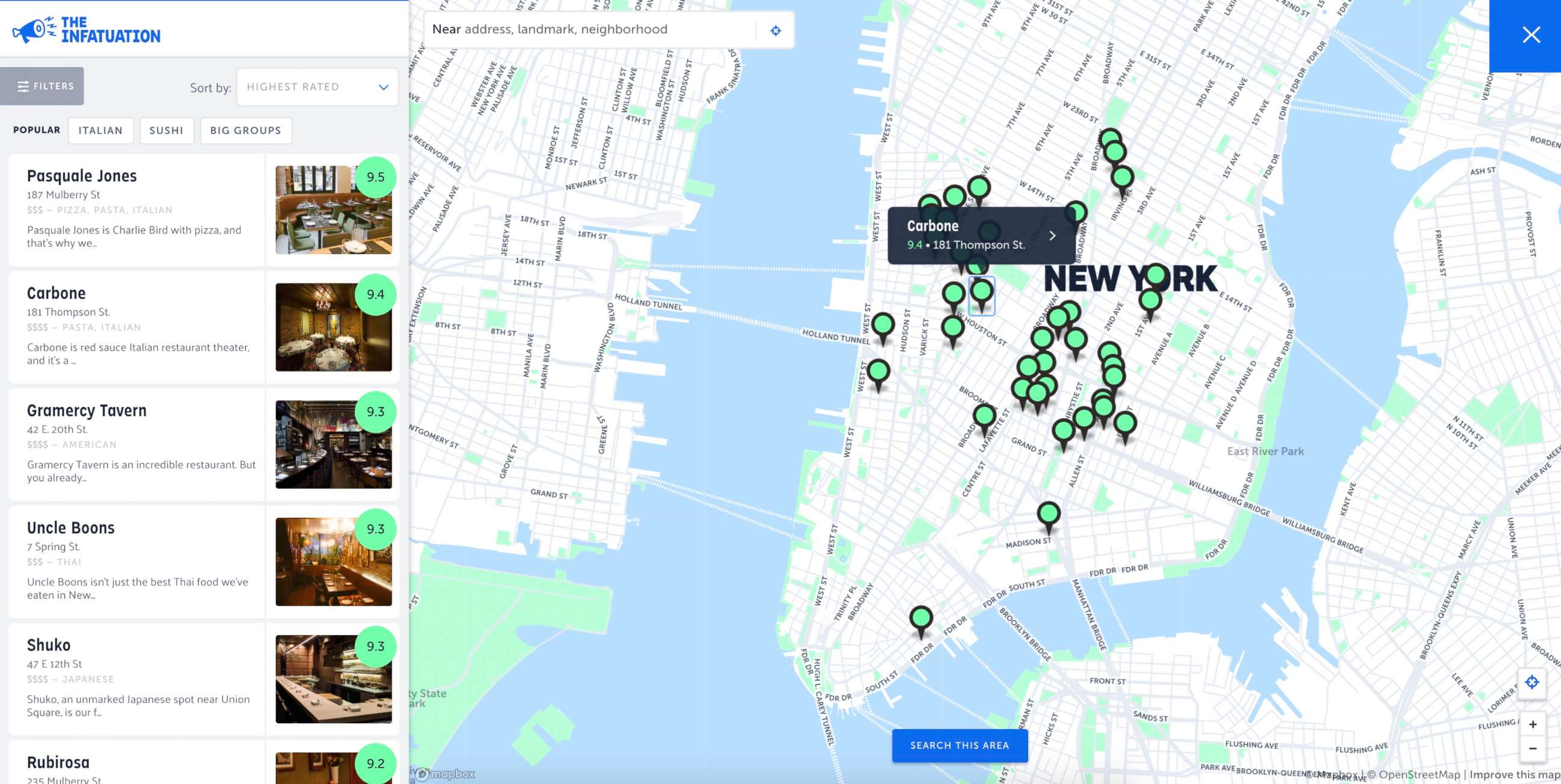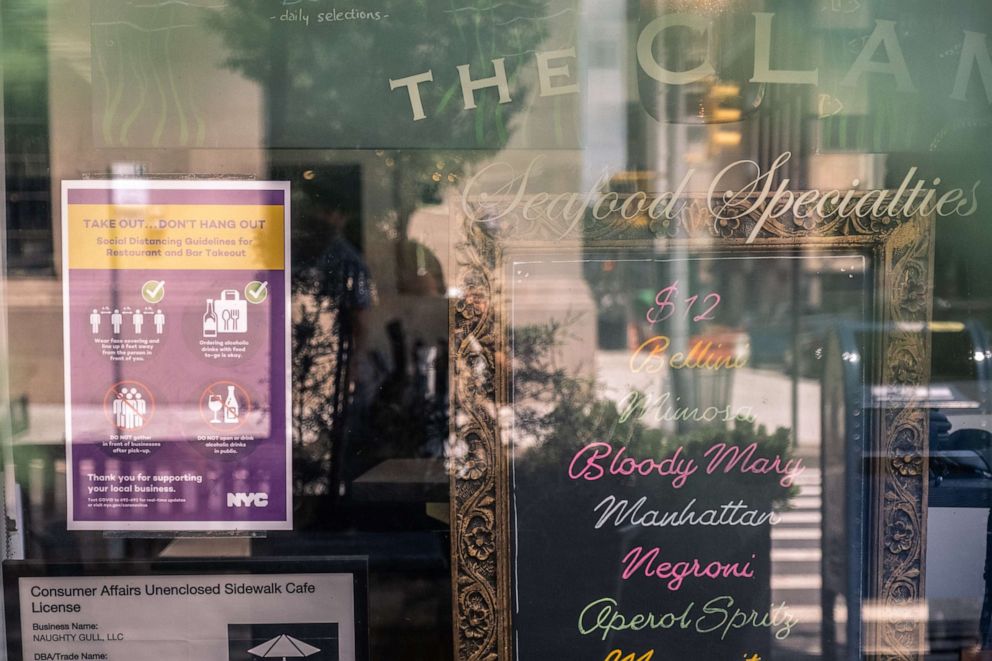Why ratings are being dropped from The Infatuation's restaurant reviews
Hillary Reinsberg made the decision to help both restaurants and diners.
With the restaurant industry rapidly evolving amid the coronavirus pandemic, The Infatuation announced Tuesday that their numbered ratings scale on all reviews are officially a thing of the past.
The once-helpful metric has quickly become an outdated language that no longer speaks to consumers due to the profound changes that have impacted restaurants as a result of COVID-19.
In doing away with the numerical scorecard, the service can set the table for new possibilities and more insightful resources for the new dining landscape.
"As we entered this period of this global pandemic we started thinking really holistically about how we would change our restaurant coverage," editor in chief Hillary Reinsberg told ABC News. "I think diners are looking for different things in making restaurant decisions right now."

The New York-based restaurant discovery and recommendation platform that started 11 years ago has been a trusted voice in the global food space to help users across major U.S. cities and abroad find the best spots for gatherings ranging from date nights and celebrations to casual coffee meetings.
The platform, as Reinsberg explained, was built on the idea of how to find the "perfect spot for a specific situation" in a particular area, which she believes will remain useful as the industry and consumer appetite continues to adapt.
Reinsberg and her staff considered the important question about the fairness of their old ratings system over the next year or two years and assessed how it would be seen as accurate.
"Through talking to people who are doing activist work for the restaurant industry, we started to really get an understanding of the fact that restaurants were going through really profound changes," she said. "That led us to think -- how would we possibly accurately review a restaurant right now?"
There is a laundry list of other uncertainties around restaurant reopenings that vary by state, including how restaurants would look with new outdoor versus indoor dining experiences, she said.

"Those conversations were the ones that were a catalyst for us -- but we realize there were benefits for removing the ratings beyond the present moment," said Reinsberg.
Reinsberg hailed their product, engineering and design teams for their ability to standup the retooled site and app "really quickly -- over the last month" to remove the old ratings from its thousands of reviews that spanned every corner of the country from New York City and Atlanta to Los Angeles, Seattle and beyond.
She added that the brand will continue to "rethink what restaurant discovery looks like on both The Infatuation and Zagat -- we see it as a collaboration between editorial and the technical product."
The Infatuation acquired the acclaimed slim, red-covered restaurant guide book and review brand from Google in 2018.
Reinsberg said they will focus on finding new ways to present relevant restaurant information to readers, including openings, closings and other big changes.
"You'll definitely see more editorial and more product changes as things develop. This is really just sort of the first step in a lot of ways," she said.
As their content continues to adapt to match the highly dynamic food and restaurant space right now, Reinsberg said The Infatuation has also kept its ears to the ground to deliver information new in formats for readers.
One of the site's Los Angeles writers, whose Black-owned restaurant Google Doc went viral, is a prime example of how localized lists with user-generated information could become a new model as readers show an increased desire to support businesses that need help or give back to the community.
"We'll be exploring new types of content as well, and that does mean different formats, bringing on more voices," the editor in chief said. "We want to cover more neighborhoods and more cities that we're not in."
Zagat conducted a survey on the future of dining in partnership with The James Beard Foundation, which found a significant shift in how consumers approach eating at restaurants following the worldwide outbreak of COVID-19.
Reinsberg said the results highlighted that there are "new factors that are most important to diners."
"We saw through that health and safety were a major concern for people. And I think you're seeing a new kind of consciousness in dining," she explained, adding that there's an interest in not only who is behind a restaurant, but "what role are they playing in the industry."

"It's been amazing to see what restaurants are doing to support their communities through charitable work. Even in this incredibly difficult time for themselves they're still finding ways to reach out and support each other and essential workers," she said.
Although the future of the hard-hit restaurant and food service industry seems to shift daily, Reinsberg said resources like The Infatuation remain committed to carving out a new version of coverage to help both diners and restaurants.
"There's been a lot of awakening about how we make our dining choices," Reinsberg said. "It's a profoundly different time for restaurants."







